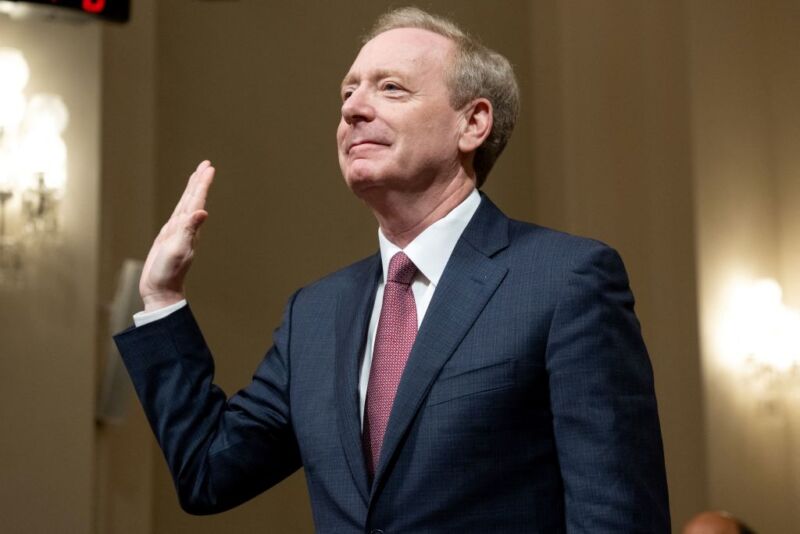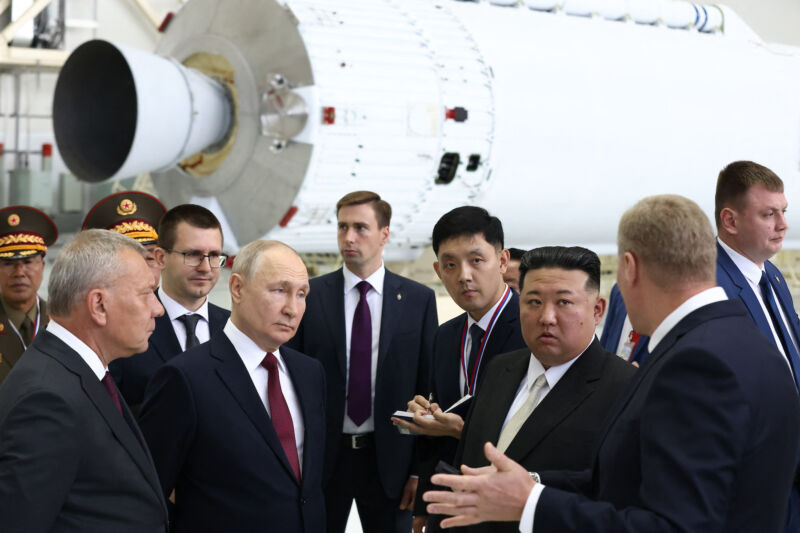
A day after the Biden administration announced a U.S. ban on the sale of Kaspersky Lab products, the U.S. Treasury Department on Friday sanctioned a dozen top executives and senior leaders at the Russian cybersecurity company.
Kaspersky took issue with the Biden administration's moves and said, "The decision does not affect the company’s ability to sell and promote cyber threat intelligence offerings and/or trainings in the U.S."
The company said the action will instead benefit cybercriminals by restricting international cooperation between cybersecurity experts. The decision to ban Kaspersky is "based on the present geopolitical climate and theoretical concerns," the company said in a
scathing response to the Commerce Department's ban.
The sanctions represent the latest in a series of punitive measures against the Russian antivirus company, underscoring growing concerns about cybersecurity and national security
risks associated with the firm's operations.
Details of the Kaspersky Sanctions
The Treasury Department’s
Office of Foreign Assets Control (OFAC) specifically targeted key individuals within Kaspersky Lab, including the chief operating officer, chief legal officer, chief of human resources, and chief business development and technology officers, among others.
[caption id="attachment_78565" align="aligncenter" width="588"]

Source: U.S. Department of the Treasury[/caption]
The Treasury added all the above individuals to its
Specially Designated Nationals list. SDN is a list maintained by OFAC that publicly identifies persons determined by the U.S. government to be involved in activities that threaten or undermine U.S. foreign policy or national
security objectives.
Notably, the sanctions did not extend to Kaspersky Lab itself, its parent or subsidiary companies nor to its CEO Eugene Kaspersky.
The sanctions came just a day after the U.S. Commerce Department
issued a final determination to
ban Kaspersky Lab from operating in the United States. This ban is rooted in longstanding concerns over national security and the potential risks to critical infrastructure.
The Commerce Department also added three Kaspersky divisions to its entity list due to their cooperation with the Russian government in
cyber intelligence activities.
The U.S. government has been wary of Kaspersky Lab's ties to the Russian government, fearing that its software could be used to facilitate cyber espionage.
Bloomberg in 2017 first reported it had seen emails between chief executive Eugene Kaspersky and senior Kaspersky staff outlining a secret cybersecurity project apparently requested by the Russian intelligence service FSB. Kaspersky
refuted these claims, calling the allegations "false" and "inaccurate."
However, these concerns have led to a broader push to restrict the company's operations within the U.S. and to mitigate any potential threats to national security.
Kaspersky Lab’s Response
Kaspersky Lab has consistently denied any allegations of being influenced or controlled by any government. The company has pledged to explore all legal options in response to the Commerce Department’s ban and the recent sanctions imposed by the Treasury.
In a statement, Kaspersky Lab reiterated its commitment to transparency and maintaining the trust of its users worldwide, emphasizing it has never assisted any government in cyber espionage activities.
"Kaspersky does not engage in activities which threaten U.S. national security and, in fact, has made significant contributions with its reporting and protection from a variety of threat actors that targeted U.S. interests and allies," it said.
"Kaspersky provides industry-leading products and services to customers around the world to protect them from all types of cyber threats, and has repeatedly demonstrated its independence from any government." - Kaspersky Lab
The antivirus company claimed it has also implemented significant transparency measures that demonstrate its commitment to integrity and trustworthiness. But "the Department of Commerce’s decision unfairly ignores the evidence," Kaspersky said.
The company said it also proposed a system in which the security of Kaspersky products could have been independently verified by a trusted third party.
"Kaspersky believes that the Department of Commerce made its decision based on the present geopolitical climate and theoretical concerns, rather than on a comprehensive evaluation of the integrity of Kaspersky’s products and services."
However, Brian Nelson, Treasury’s Undersecretary for Terrorism and Financial Intelligence, stated, “Today’s action against the leadership of Kaspersky Lab underscores our commitment to ensure the integrity of our cyber domain and to protect our citizens against malicious cyber threats. The U.S. will take action where necessary to hold accountable those who would seek to facilitate or otherwise enable these activities.”
Implications and Future Actions
The sanctions against Kaspersky Lab’s leadership signal a broader strategy by the U.S. government to address
cybersecurity threats posed by foreign entities. This approach is part of a larger effort to strengthen national security and protect critical infrastructure from potential cyberattacks.
Legal and Business Repercussions
Kaspersky Lab’s legal battles and its efforts to counteract these sanctions will be closely watched. The company's ability to operate in the international market could be significantly affected by these measures, impacting its business operations and customer trust.
Global Cybersecurity Landscape
This development also highlights the ongoing tensions in the global cybersecurity landscape, where national security concerns often intersect with business interests. The actions taken by the U.S. government may set a precedent for how other nations address similar concerns with foreign technology firms.
The U.S. Treasury Department's decision to sanction senior leaders at Kaspersky Lab marks a pivotal moment in the ongoing scrutiny of the Russian cybersecurity firm.
While Kaspersky Lab denies any wrongdoing and prepares to contest the sanctions legally, the actions taken by the U.S. government underscore a determined effort to mitigate potential cyber threats and protect national security. As the situation unfolds, it will have significant implications for both Kaspersky and the broader cybersecurity environment.

 Source: Cyble[/caption]
The hackers use a technique called DLL sideloading, where a malicious library file masquerades as a legitimate one. This allows the attackers to run their code under the guise of trusted software. Additionally, they employ a tool called Shadowloader to inject the XWorm RAT into a running process, further obscuring its presence.
The XWorm RAT is then executed, offering a range of capabilities, including data theft,
Source: Cyble[/caption]
The hackers use a technique called DLL sideloading, where a malicious library file masquerades as a legitimate one. This allows the attackers to run their code under the guise of trusted software. Additionally, they employ a tool called Shadowloader to inject the XWorm RAT into a running process, further obscuring its presence.
The XWorm RAT is then executed, offering a range of capabilities, including data theft,  Source: Cyble[/caption]
While the initial infection vector remains unclear, researchers suspect phishing emails may play a role. The intended victim could not be ascertained from accessing the the Excel lure used in the campaign. CRIL researchers had previously observed the UAC-0184 threat actor group employing lures tailored to appeal to Ukrainian targets, often mimicking official government or utility communications.
Source: Cyble[/caption]
While the initial infection vector remains unclear, researchers suspect phishing emails may play a role. The intended victim could not be ascertained from accessing the the Excel lure used in the campaign. CRIL researchers had previously observed the UAC-0184 threat actor group employing lures tailored to appeal to Ukrainian targets, often mimicking official government or utility communications.

 Source: U.S. Department of the Treasury[/caption]
The Treasury added all the above individuals to its
Source: U.S. Department of the Treasury[/caption]
The Treasury added all the above individuals to its 

 Source: SBU[/caption]
According to the SBU, the accounts hosted on this bot farm were also used to spread pro-Kremlin propaganda purporting as ordinary Ukrainian citizens.
Another 30-year-old man from Dnipro allegedly registered nearly 15,000 fake accounts on various social networks and messaging platforms using Ukrainian SIM cards. He sold these accounts to Russian intelligence services on darknet forums.
[caption id="attachment_77337" align="aligncenter" width="1024"]
Source: SBU[/caption]
According to the SBU, the accounts hosted on this bot farm were also used to spread pro-Kremlin propaganda purporting as ordinary Ukrainian citizens.
Another 30-year-old man from Dnipro allegedly registered nearly 15,000 fake accounts on various social networks and messaging platforms using Ukrainian SIM cards. He sold these accounts to Russian intelligence services on darknet forums.
[caption id="attachment_77337" align="aligncenter" width="1024"] Source: SBU[/caption]
Both suspects face up to three years in prison or a fine if found guilty. The investigation continues.
Source: SBU[/caption]
Both suspects face up to three years in prison or a fine if found guilty. The investigation continues.


 Items seized in Ukraine ransomware arrest[/caption]
The Ukraine
Items seized in Ukraine ransomware arrest[/caption]
The Ukraine 








